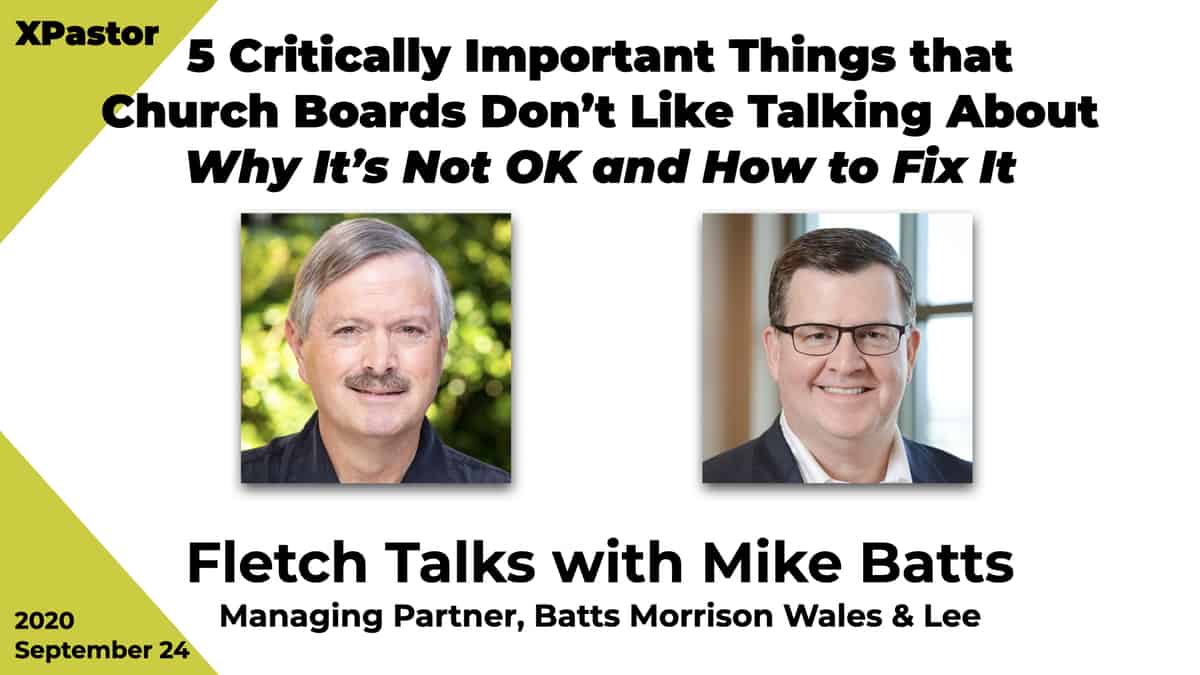Golden Opportunities Are Missed When a Board’s Eyes Are Wide Shut
It was a Busby family vacation trip to Texas. The afternoon we drove from Houston to Dallas is still etched in my memory. It was a very hot summer day. The road was long and straight. Our two children were asleep in the back seat. My wife was asleep in the front passenger’s seat. The car was on cruise control. And I was tired.
We were making good progress going north on I-35. Or we were, until I fell asleep at the wheel. There are the times when your eyelids get heavy and you fight off drowsiness. This was not one of those times. This was full-blown, eyes entirely shut, asleep.
I didn’t feel a thing when the car edged off the interstate and into the wide ditch. I don’t know how we ended up going 70 miles per hour in the bottom of the ditch without the car turning over. But I do remember waking up to the swishing sound of very tall grass hitting the front bumper and windows of the car as we plowed a path through the ditch.
I also remember seeing a concrete bridge abutment several hundred feet ahead that would have brought the car to a very sudden stop. Now, alarmingly wide awake, I gently steered the car up the side of the ditch and back onto the interstate just before we reached the bridge. I breathed a prayer of thanksgiving, and we continued our trek.
Likewise, boards can become drowsy and listless by slipping into a routine of grinding through “one more meeting.” When this happens, churches can veer off course, headed toward an immovable object—and when that happens, opportunities for discernment and faithful administration are often missed. Here are four examples:
- Improper use of designated (the technical term is “restricted”) gifts.[1] It is not unusual for a church to receive gifts designated for a certain purpose (for example, the building fund, the benevolence fund and so on) and borrow the funds for operational purposes. Worse yet is when a church expends designated gifts for a purpose inconsistent with the giver’s designation, with no plans to replace the money into the designated account. Asleep at the wheel.
- Disappearing reserves.[2] Many a church has gradually moved from a financially sound position to a troubled financial situation. This transition happened while board members routinely approved the budget and the annual financial reports. Just one example: The budget was balanced, but significant resources were expended on capitalized items and the church did not have a capital budget. Asleep at the wheel.
- Approving related-party transactions that are inappropriate.[3] Some transactions seem to be in the best interest of the church. Yet the close relationship of those involved and the significant dollar size of the transactions leave some observers convinced that the related-party dealings are inappropriate. Asleep at the wheel.
- Leadership failure. Sometimes a board will overlook, or even miss, the continuing chaos created by the senior pastor. When there is frequent turnover of board members, the fact that the senior pastor has gone off the rails is often masked. Asleep at the wheel.
It is hard work for a board to see the big picture in every board meeting. It takes a board comprised of individuals who are:
- Committed—to following the church’s progress between board meetings based on the reports shared by the church’s leader.
- Dedicated—to studying the board materials they receive in advance of each board meeting.
- Focused—on alignment of the church’s mission, vision, and values with the strategic plan. (P.S. It is difficult to be focused and fully engaged when texting, tweeting, and responding to emails while the meeting is in progress.
Boards most often fall asleep at that wheel when they:
- Misread the landscape. Acute discernment is necessary to sense what may be coming just around the corner. Without these keen insights into the future, a church may be too mired in the past to adjust to a rapidly changing landscape.
- Can’t see the forest for the trees. Having sound policies and following them is good. But some boards are so focused on policies that they fail to ask the insightful questions about the direction of the ministry. They have checked all the boxes (the trees) and missed the big picture (the forest).
- Become mired in the weeds. The classic board that is asleep at the wheel is the board that spends too much of its time on operational matters. This not only diminishes the role of the senior pastor but also makes it nearly impossible for the board to focus on the big picture.
Is your board asleep at the wheel? Remember that golden opportunities for Kingdom impact are missed when a board’s eyes are wide shut.
Boardroom Lesson
Through commitment, dedication, and a focus on the big picture, boards can fight off mental drowsiness.
Board Action Steps
- Measure: Review the board’s recent history. Were we alert to the most important issues?
- Create: Invest energy, prayer, and creativity to plan board meetings that will be engaging and fulfilling for ministry leaders and board members.
- Prioritize: Ensure that board agendas address key issues requiring the board’s generative thinking and the board’s heavy lifting.
Prayer
“Lord, help our board to be fully present in each board meeting, to maximize our time, and to not be asleep at the wheel. Amen.”
Looking for more resources?
Perhaps you can relate to this lesson about boards asleep at the wheel. Maybe you’re in search of more practical tools to rouse your board from the governance grind? If so, good news is just in time!
This lesson is just 1 of 40 in my latest release with John Pearson published by ECFAPress–Lessons from The Church Boardroom. We’re already hearing powerful testimonies on how these 40 lessons are transforming boards in small doses of board training across regular meetings or as an in-depth study in a focused retreat setting.
The good news just gets better. This fall, I would like to personally invite you to join me and friends from ECFA at one of our eight regional governance forums. These engaging and interactive sessions will integrate biblical wisdom with practical governance best practices. Peer-to-peer discussions will dominate—not talking heads. Plus, assess your church against the latest trends in new research announced from ECFA’s lead researcher Dr. Warren Bird. Reserve spots for you and a board member.
I can’t wait to hear how God will use these resources to help your board rise to the next level of excellence in governance. I welcome your comments and stories at Dan@ECFA.org.
Notes
[1] See ECFA, 10 Essentials of Giver-Designated Gifts to Churches.
[2] See ECFA, 9 Essentials of Church Cash Reserves
[3] See ECFA, 7 Essentials of Church Related-Party Transactions.
This article was originally published here on ECFA’s website and has been republished on XPastor.org with permission.











